Helen Lowe's Blog, page 281
October 22, 2011
Today's The Big Day …
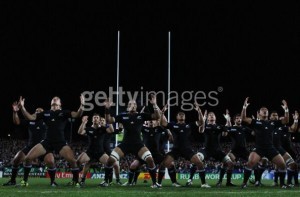
All Blacks' Haka
Yes, I've finally caught World Cup Fever—I'm even going to be in front of the TV tonight to watch as the New Zealand All Blacks square off against France's national team, Les Bleus, for the grand final of the four-yearly Rugby World Cup.
As I mentioned on Friday, it's a case of historic deja vu because the final of the first ever Rugby World Cup, in 1987, was also played in Auckland's Eden Park between the All Blacks and the French. And yes, the All Blacks did win, back then … But what will tonight bring?
Like everyone else, I shall have to watch the game and find out!
But I had probably better 'fess up here: even though I did much of my growing up in the King Country, which is heartland rugby country, I'm probably something of an apostate in only having a mild enthusiasm for the game. I will enjoy watching the final and I would certainly like the All Blacks to win, but I'll get over it pretty quickly if they don't. At the end of the day, for me it is "only a game." (OK, OK, I know—duly going to wash my mouth out right now!  )
)
—
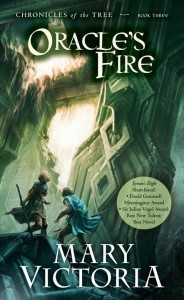 And of course at noon today I'll be at the WETA Cave, on the cnr of Camperdown Rd and Weka Street in Wellington, enjoying the launch of Mary Victoria's Oracle's Fire. I hope to see some of you there—and one thing you won't hear me saying is: [Shrug] "It's only a book!" Because as we all know, there's-no-such-thing!
And of course at noon today I'll be at the WETA Cave, on the cnr of Camperdown Rd and Weka Street in Wellington, enjoying the launch of Mary Victoria's Oracle's Fire. I hope to see some of you there—and one thing you won't hear me saying is: [Shrug] "It's only a book!" Because as we all know, there's-no-such-thing! 
October 21, 2011
Forget-Me-Nots

Blue along the drive ...
I have posted several times recently about spring this year—which I think is more about the way I'm noticing it, after much of the past year seemed caught in an earthquake-induced stasis against which seasonal change did not register …
Or putting it another way—it felt, for a long time, as though "winter" was a state of mind, one that was going to endure forever.
At any rate, I've really been noticing this year's
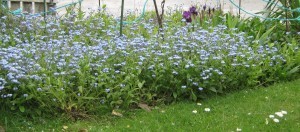
... and in the garden
spring. And today I realised that various parts of my garden have become a mist of blue—the delicate, joyful blue of forget-me-nots. Now I know that a lot of people regard forget-me-nots as a weed—together with a few other plants that are perennial in my garden, such as Flanders poppies and columbine—but I feel that any "ordinariness" potentially associated with forget-me-nots through the rest of the year is more than compensated for by seeing that mist of blue across my garden every spring.
[image error]
Up close ...
And like all good things, forget-me-nots, too, should be shared; hence the pics. 
I was also delighted to spot the purple irises in their midst, which are not just the first for this year, but also the first blooms I have had since I planted them out seven years ago. I transplanted the roots from my mother's garden, together with the surrounding Michaelmas daisies, but although the "daisies" (really an aster in the case of the Michaelmas kind, I believe) have flowered vigorously every year since, the irises have required more patience.
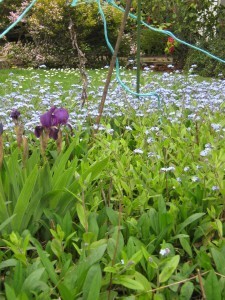
... and 'it's a first': those purple irises flowering against the blue
A friend told me a while back—when I was a-worritin' that I wasn't spending enough time in the garden because of book commitments—that "gardens are patient." So perhaps it's fitting that gardeners are patient, too. 
October 20, 2011
And The Excitement Builds …
 So we're in the final countdown now, looking toward the Big Day on Sunday 24, with the excitement starting to build for this long awaited event. I'll definitely be flying north for it—wouldn't miss it for worlds in fact—and am looking forward to a bit of excitement and razzmatazz.
So we're in the final countdown now, looking toward the Big Day on Sunday 24, with the excitement starting to build for this long awaited event. I'll definitely be flying north for it—wouldn't miss it for worlds in fact—and am looking forward to a bit of excitement and razzmatazz.
The final of the Rugby World Cup?
Oh no, I'm talking about the launch of Mary Victoria's third novel, Oracle's Fire (Harper Voyager), which is the also the final book in her Chronicles of the Tree trilogy. The launch is at 12 noon this Sunday 23 October at the Weta Cave (cnr of Weka and Camperdown Roads) in Wellington—and I am delighted to be officially speaking some good words, as a friend and fellow author, for Mary on such an important occasion.
[image error]But you're quite right, Sunday is also the day—although fortunately the game will be in the evening—on which the Rugby World Cup final will be played out between New Zealand's All Blacks and France. A bit of deja vu there, as of course the first Rugby World Cup final in 1987 was also played out between New Zealand and France, at Eden Park in Auckland, with the All Blacks famously winning. So it's probably fortunate Mary's launch for Oracle's Fire is in the middle of the day, as otherwise there'd be no one available to watch this famous re-match. 
Speaking of launches, there's a couple happening here in Christchurch over the next few weeks, both to commence at 5.30 pm, in the CPIT Students' Association (CPSA) Hall, 5 Madras Street in the City (or what's left of it—sorry folks, couldn't resist that!)
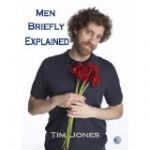 On Wednesday 26 October Tim Jones will be doing the Christchurch launch for his new poetry collection, Men Briefly Explained (Interactive Press.) By way of adding to the celebration, I hope to feature one of Tim's poems from the collection as my Tuesday Poem next week.
On Wednesday 26 October Tim Jones will be doing the Christchurch launch for his new poetry collection, Men Briefly Explained (Interactive Press.) By way of adding to the celebration, I hope to feature one of Tim's poems from the collection as my Tuesday Poem next week.
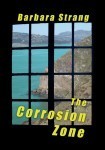 And on 9 September, Barbara Strang will officially launch her second poetry collection, The Corrosion Zone (HeadworX)—and again I am honoured to be asked to officially launch the book. You may recall that I featured Indigo, a poem from The Corrosion Zone, as my Tuesday Poem on September 20, here.
And on 9 September, Barbara Strang will officially launch her second poetry collection, The Corrosion Zone (HeadworX)—and again I am honoured to be asked to officially launch the book. You may recall that I featured Indigo, a poem from The Corrosion Zone, as my Tuesday Poem on September 20, here.
October 19, 2011
"Writers Are Thieves"—aka Influences on Story
Yesterday, in our interview here, Daniel Abraham said that: "More than [being] readers, writers are thieves."
Fellow author and friend, Mary Victoria, commented: " … yes, yes, yes. We use a bit of this and a bit of that. We borrow from each other, from the common store of history and myth. We even raid our own memories … nothing is sacred!"
Of course I had to respond that I preferred the word "magpies" to "thieves" (  ) but the principle is the same. There was a synergy for me in this discussion, because only the day before I had been at Christchurch's South library, talking about—amongst other things—influences on my work. Or in other words, about all the treasure trove of ideas, artefacts, and experiences over the years that had caused my magpie self to think: "Shiny!" Or "Bright! Or "Gleamy, and Sheeny, and Glittery!" (I was going to say "sparkly", but you know, those vampires—just can't go there.) And then purloin them for my writer's melting pot—long before I consciously decided to be a writer.
) but the principle is the same. There was a synergy for me in this discussion, because only the day before I had been at Christchurch's South library, talking about—amongst other things—influences on my work. Or in other words, about all the treasure trove of ideas, artefacts, and experiences over the years that had caused my magpie self to think: "Shiny!" Or "Bright! Or "Gleamy, and Sheeny, and Glittery!" (I was going to say "sparkly", but you know, those vampires—just can't go there.) And then purloin them for my writer's melting pot—long before I consciously decided to be a writer.
I've talked about influences on story before and you can check out the collected posts here. The thievery Daniel Abraham referred to yesterday was of those elements of literature that delight you a reader—and promptly want in your own stories. And as I said in my Influences of Story post on February 3rd, other writing is undoubtedly an influence on any writer's development. Diving into the vast sargasso sea of literature always sparks ideas and 'what ifs', and on February 3 I showed how this process might work using the example of Hilaire Belloc's poem, Tarantella.
Other sources for magpie gleaning that I mentioned in my library talk included:
Fairytales, folk stories, myths and legends. By way of example I discussed Thornspell as a retelling of the Sleeping Beauty fairytale from the perspective of the prince, and also how I drew on the Parsifal cycle to inform the backdrop of the story. I also spoke of the way in which The Heir of Night was influenced by the classic stories of Greek and Norse myth.
History—has always informed my work, as in the Renaissance era, Holy Roman Empire influence on the world building in Thornspell, or the way in which Heir draws on history's social, cultural, and economic conflicts, both within societies as well as between nations.
The space programme, astronomy, and the environment—all influenced my love of science fiction.
Narrative Poetry—you just can't beat it: from those great classics The Iliad and The Odyssey, and the medieval Morte d'Arthur, but also the Anglo-Saxon Beowulf, Chaucer's Canterbury Tales from the late Middle Ages, and Spenser's Faerie Queene or Milton's Paradise Lost from the early modern period.
Sense of Place—another influence that I have discussed in two recent posts, here and here, and also last year, here. And of course sense of place also ties into awareness of environment again.
And then there's music, dance, opening up the newspaper … And as Mary so rightly pointed out, our own life experiences to be mined if so desired.
Life, the universe and everything, it seems, are a dragon's hoard, and writers the thieves turning over this gem and that jewel, searching for the elusive Arkenstone …
So how about you? Are there particular writing elements that spin your wheels as a reader? Or that strongly influence you as a writer? Where do you draw your inspiration?
October 18, 2011
An Interview with Daniel Abraham, Author of "The Dragon's Path"
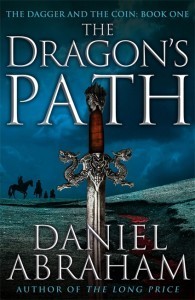 Last year I was alerted to US author Daniel Abraham and The Long Price Quartet by the review site Risingshadow.net. I found the series intriguing, but also realized that I was late to the party: the series had been completed in 2009, but never distributed in New Zealand. So I was delighted to learn that Daniel Abraham had a new Fantasy series, The Dagger and The Coin, being published this year and that it would be released here. The first novel in the new series, The Dragon's Path, is recently out in the bookshops and I seized the opportunity to talk with Daniel Abraham about it.
Last year I was alerted to US author Daniel Abraham and The Long Price Quartet by the review site Risingshadow.net. I found the series intriguing, but also realized that I was late to the party: the series had been completed in 2009, but never distributed in New Zealand. So I was delighted to learn that Daniel Abraham had a new Fantasy series, The Dagger and The Coin, being published this year and that it would be released here. The first novel in the new series, The Dragon's Path, is recently out in the bookshops and I seized the opportunity to talk with Daniel Abraham about it.
Helen:
The Dragon's Path is the first in a new series, titled The Dagger and The Coin—can you give readers an idea of what its about?
Daniel: It's an epic fantasy series that borrows as much from Dorothy Dunnett as it does from Tolkien. It's about war and banking, love and truth and murder and dragons.
Helen: In what way "Dorothy Dunnet"?
Daniel: Dorothy Dunnett is one of the underappreciated masters of historical fiction and, frankly, fantasy. She and Tim Parks were the people who convinced me that medieval banking was a powerfully cool thing. Plus which, I've read her House of Niccolo books through more times than almost anything else I own.
Helen:
Do you agree that it's fair to describe The Dagger's Path as classic epic fantasy, with elements such as a medieval world, the legacy
of a long ago past reawakening, a journey—the title reference to dragons even! What drew you to this very traditional, storytelling form?
Daniel: The first epic fantasy series I wrote – The Long Price Quartet – was built to be unlike anything else I'd seen in the genre. A different setting, an unfamiliar structure, and a story that wasn't the usual at all. I'm very pleased with how those books came out. And having been there, I wanted to come back to the things that are the core strengths of epic fantasy and see how the lessons I learned out there on the borders of the genre could apply to those issues and concerns. That sounds a little pretentious now that I say it out loud. I was drawn to it because it's what made me fall in love with the genre as a reader, and I wanted to come home to that.
Helen: Is there any sense in which you feel the story you are telling subverts the formula, either subtly or openly?
Daniel: Probably there is. I've taken out the traditional farm boy chosen of prophecy and put in a girl raised by a medieval bank, which is hardly the standard. And I've certainly taken a different perspective on the traditional dark lord. But subverting? I don't know.
I'm sceptical of subversion for subversion's sake. I think that there's a real pressure to subvert the genre out of a sense of almost shame. It can be like a pre-emptive apology. I've done things that are different, but I've done them in an effort to reach the same places and effects, so I don't think of it as subversive.
Helen: Could you expand a little more on how you feel that you've taken a different perspective on the traditional dark lord?
Daniel: A few years back, I was at a convention with Tim Powers. He was on a panel, and I was listening. He said that he didn't just want his villains defeated. He wanted them humiliated and destroyed. I don't. I want my villains understood and, if possible, forgiven. The Dagger and the Coin has its dark lord, and his rise to power and the things that come from that are central to the book. But he isn't the kind of faceless "I'm evil because that's what it says in the script" inhuman force that you have in Sauron. He's sympathetic. You like him. You see the joy he takes in things, and the fear that drives him, and the pettiness. I think most evil isn't pure, any more than most good.
Helen: Writers are also readers—so what are the elements that
"spin your wheels" when reading fantasy? How do you approach incorporating them into your own writing?
Daniel: More than readers, writers are thieves. I was very careful planning this series to take all the things about fantasy that spun my wheels and put them in there. Epic fantasy is, I think, a genre about war and – in the best ones – an ambivalence about war. There are plenty of fantasies that are triumphalist, but the ones that really last are frankly melancholy. The Lord of the Rings was a massive epic fantasy about disarmament and the cost war has on the individual. A Song of Ice and Fire is among other things an essay on the futility of war. The aspect that I've taken in The Dagger and the Coin is the way that the story of a war, be it propaganda or history, outstrips the war itself. That's at the large scale. The thing that I find myself going back to in books that I love are the characters. So I've peopled these books with characters I like spending time with. But I suppose that's true in any genre.
Helen: So which are the characters in The Dragon's Path that you most enjoy spending time with? And why?
Daniel: I like them all. I'd better. But for different reasons. I like Marcus Wester because he has so many of the good lines. I like Cithrin because she gets to think about economics and power and how you set prices and sell dresses and things that I actually find really involving. I like Dawson because he is so utterly opposed to everything I personally believe and he's so much in love with his wife that I like him anyway. I like Geder Palliako because he's a kind of character that I find wholly challenging. And there's Clara. I've written a whole book since Dragon's Path, so I've been able to spend a great deal of time with her, and she's probably my favorite. For the moment at least.
Helen: One thing that impressed me in your earlier series, The Long Price Quartet, was how well you wrote women characters. Amat Kyaan and Idaan Machi particularly stand out for me but there are many more. So I couldn't help noticing that in terms of major characters there is really only one, Cithrin, in The Dagger's Path. It sounds as though Clara's going to come into it more, but in this book she's still very much a bit part. Was this approach a conscious decision on your part, or in some way driven by the plot?
Daniel: Clara Kalliam is one of those main characters who actually has a relatively small role in the first book, which is always tricky with these long, multi-volume stories. She is a tremendously important and central character, too, but you won't see her as much until King's Blood. Then from there on out, there are about as many primary women characters as there are men. That was intentional.
For secondary characters, I actually didn't want Cithrin surrounded by very many women. I hadn't thought about this until you asked, but part of what makes her story interesting to me is the sense of vulnerability and isolation growing into strength and community. We're still in the first part of the series, so the vulnerability and isolation are more in the mix here.
One thing that's interesting about these books that I didn't consciously plan was the number of dead mothers. Two of the major characters – the two major characters really – lost their mothers very young, and in both cases I see that loss forming who they are.
Helen: In what way, "the loss forming who they are" with the two main characters—can you expand on that more?
Daniel: Cithrin is the girl at the center of the bank, and the thing that makes her individual and fascinating is the way she analyzes everything in economic terms. Where other people grew up with parents, she had a merchant and a manipulator. And what he gave her wasn't love, it was an understanding of negotiation, gamesmanship, and trade. I think if she'd had a mother to take as a model, she'd have been an utterly different person.
Geder Palliako had a father growing up, but not one who was particularly nurturing. I see him as someone who, if he'd been loved a little more, might have developed more of a soul. Geder and Cithrin suffered the same kind of absences when they were kids, and I think it deformed them in similar ways.
Helen: So far, The Dagger and The Coin series is quite different in 'feel' to The Long Price Quartet. Do you see yourself trying something different again once this series is complete or would you like to continue with epic fantasy?
Daniel: It feels like every book I write is there to help build the tools for the book after it. What I'd really like to do after The Dagger and the Coin books are done is take what they teach me about accessibility and pacing and the strength at the core of epic fantasy and combine them with the unfamiliarity and strangeness of The Long Price books to make a single-volume story. I've told one story in four books. This one will be in five. I would love to use the things I've learned from them to write something that's almost distilled. I don't know what that book is yet, and I won't for a few years, but I'm a little excited about it already.
Helen: Daniel, having read both the Long Price books and now The Dragon's Path , I am very much looking forward to it, too—although with three books yet to write in The Dagger and The Coin series, I suspect I may have to "bide a wee" yet! In the meantime, thank you very much for agreeing to do this interview—it's been fun and I am sure readers will enjoy the insight into your book and series as much as I have.
—
 About the Author:
About the Author:Daniel Abraham is the author of the critically acclaimed Long Price Quartet. He has been nominated for the Hugo, Nebula and World Fantasy Awards, and won the International Horror Guild Award. He also writes as MLN Hanover and (with Ty Franck) as James S. A. Corey. He lives in New Mexico.
<!– /* Style Definitions */ p.MsoNormal, li.MsoNormal, div.MsoNormal {mso-style-unhide:no; mso-style-qformat:yes; mso-style-parent:""; margin:0cm; margin-bottom:.0001pt; mso-pagination:widow-orphan; text-autospace:none; font-size:12.0pt; font-family:"Times New Roman","serif"; mso-fareast-font-family:"Times New Roman"; mso-fareast-theme-font:minor-fareast; mso-ansi-language:EN-GB;} p.MsoBodyText, li.MsoBodyText, div.MsoBodyText {mso-style-priority:99; mso-style-unhide:no; mso-style-link:"Body Text Char"; margin:0cm; margin-bottom:.0001pt; mso-pagination:widow-orphan; text-autospace:none; font-size:12.0pt; font-family:"Times New Roman","serif"; mso-fareast-font-family:"Times New Roman"; mso-fareast-theme-font:minor-fareast; mso-ansi-language:EN-GB; font-style:italic;} span.BodyTextChar {mso-style-name:"Body Text Char"; mso-style-priority:99; mso-style-unhide:no; mso-style-locked:yes; mso-style-link:"Body Text"; mso-ansi-font-size:12.0pt; mso-bidi-font-size:12.0pt; font-family:"Times New Roman","serif"; mso-ascii-font-family:"Times New Roman"; mso-hansi-font-family:"Times New Roman"; mso-bidi-font-family:"Times New Roman"; mso-ansi-language:EN-GB; font-style:italic;} .MsoChpDefault {mso-style-type:export-only; mso-default-props:yes; font-family:"Calibri","sans-serif"; mso-ascii-font-family:Calibri; mso-ascii-theme-font:minor-latin; mso-fareast-font-family:"Times New Roman"; mso-fareast-theme-font:minor-fareast; mso-hansi-font-family:Calibri; mso-hansi-theme-font:minor-latin; mso-bidi-font-family:"Times New Roman"; mso-bidi-theme-font:minor-bidi;} .MsoPapDefault {mso-style-type:export-only; margin-bottom:10.0pt; line-height:115%;} @page WordSection1 {size:612.0pt 792.0pt; margin:72.0pt 72.0pt 72.0pt 72.0pt; mso-header-margin:36.0pt; mso-footer-margin:36.0pt; mso-paper-source:0;} div.WordSection1 {page:WordSection1;} /* List Definitions */ @list l0 {mso-list-id:1577982881; mso-list-type:simple; mso-list-template-ids:134807567;} @list l0:level1 {mso-level-tab-stop:18.0pt; mso-level-number-position:left; margin-left:18.0pt; text-indent:-18.0pt;} ol {margin-bottom:0cm;} ul {margin-bottom:0cm;} –> </p>
<p class="MsoNormal"><span lang="EN-GB">Last year I was alerted to US author Daniel Abraham and <strong><span style="text-decoration: underline;">The Long Price</span> </strong>Quartet by the review site Risingshadow.net. I found the series intriguing, but also realized that I was late to the party: the series had been completed in 2009, but never distributed in New Zealand. So I was delighted to learn that Daniel Abraham had a new Fantasy series, the <strong><span style="text-decoration: underline;">Coin and Dagger</span></strong>, being published this year and that it would be released here. The first novel in the new series, <strong><em>The Dragon's Path</em></strong>, is recently out in the bookshops and I seized the opportunity to talk with Daniel Abraham about it. </span></p>
<p class="MsoNormal"><span lang="EN-GB"> </span></p>
<p class="MsoNormal" style="margin-left: 18pt; text-indent: -18pt;"><em><span lang="EN-GB">1.<span style="font: 7pt &"> </span></span></em><em><span lang="EN-GB">Helen:<strong> The Dragon's Path</strong> is the first in a new series, titled <span style="text-decoration: underline;">The Dagger and The Coin</span>—can you give readers an idea of what it's about?</span></em></p>
<p class="MsoNormal"><span lang="EN-GB"> </span></p>
<p class="MsoBodyText"><span style="font-style: normal;" lang="EN-GB">Daniel: It's an epic fantasy series that borrows as much from Dorothy Dunnett as it does from Tolkien. It's about war and banking, love and truth and murder and dragons.</span></p>
<p class="MsoNormal"><span lang="EN-GB"> </span></p>
<p class="MsoNormal" style="margin-left: 18pt; text-indent: -18pt;"><em><span lang="EN-GB">2.<span style="font: 7pt &"> </span></span></em><em><span lang="EN-GB">Helen: In what way, "Dorothy Dunnett"?</span></em></p>
<p class="MsoNormal"><span lang="EN-GB"> </span></p>
<p class="MsoNormal"><span lang="EN-GB">Daniel: Dorothy Dunnett is one of the underappreciated masters of historical fiction and, frankly, fantasy. She and Tim Parks were the people who convinced me that medieval banking was a powerfully cool thing. Plus which, I've read her <span style="text-decoration: underline;">House of Niccolo</span> books through more times than almost anything else I own.</span></p>
<p class="MsoNormal"><span lang="EN-GB"> </span></p>
<p class="MsoNormal" style="margin-left: 18pt; text-indent: -18pt;"><em><span lang="EN-GB">3.<span style="font: 7pt &"> </span></span></em><em><span lang="EN-GB">Helen: Do you agree that it's fair to describe <strong>The Dagger's Path</strong> as classic epic fantasy, with elements such as a medieval world, the legacy of a long ago past reawakening, a journey—the title reference to dragons even! What drew you to this very traditional, storytelling form? </span></em></p>
<p class="MsoNormal"><span lang="EN-GB"> </span></p>
<p class="MsoNormal"><span lang="EN-GB">Daniel: The first epic fantasy series I wrote – <span style="text-decoration: underline;">The Long Price Quartet</span> – was built to be unlike anything else I'd seen in the genre. A different setting, an unfamiliar structure, and a story that wasn't the usual at all. I'm very pleased with how those books came out. And having been there, I wanted to come back to the things that are the core strengths of epic fantasy and see how the lessons I learned out there on the borders of the genre could apply to those issues and concerns. That sounds a little pretentious now that I say it out loud. I was drawn to it because it's what made me fall in love with the genre as a reader, and I wanted to come home to that. </span></p>
<p class="MsoNormal"><span lang="EN-GB"> </span></p>
<p class="MsoBodyText" style="margin-left: 18pt; text-indent: -18pt;"><span lang="EN-GB">4.<span style="font: 7pt &"> </span></span><span lang="EN-GB">Helen: Is there any sense in which you feel the story you are telling subverts the formula, either subtly or openly?</span></p>
<p class="MsoNormal"><span lang="EN-GB"> </span></p>
<p class="MsoNormal"><span lang="EN-GB">Daniel: Probably there is. I've taken out the traditional farm boy chosen of prophecy and put in a girl raised by a medieval bank, which is hardly the standard. And I've certainly taken a different perspective on the traditional dark lord. But subverting? I don't know.</span></p>
<p class="MsoNormal"><span lang="EN-GB"> </span></p>
<p class="MsoNormal"><span lang="EN-GB">I'm sceptical of subversion for subversion's sake. I think that there's a real pressure to subvert the genre out of a sense of almost shame. It can be like a pre-emptive apology. I've done things that are different, but I've done them in an effort to reach the same places and effects, so I don't think of it as subversive.</span></p>
<p class="MsoNormal"><span lang="EN-GB"> </span></p>
<p class="MsoBodyText" style="margin-left: 18pt; text-indent: -18pt;"><span lang="EN-GB">5.<span style="font: 7pt &"> </span></span><span lang="EN-GB">Helen: Could you expand a little more on how you feel that you've taken a different perspective on the traditional dark lord?</span></p>
<p class="MsoNormal"><span lang="EN-GB"> </span></p>
<p class="MsoNormal"><span lang="EN-GB">Daniel: A few years back, I was at a convention with Tim Powers. He was on a panel, and I was listening. He said that he didn't just want his villains defeated. He wanted them humiliated and destroyed. I don't. I want my villains understood and, if possible, forgiven. <span style="text-decoration: underline;">The Dagger and the Coin</span> has its dark lord, and his rise to power and the things that come from that are central to the book. But he isn't the kind of faceless <em>"I'm evil because that's what it says in the script"</em> inhuman force that you have in Sauron. He's sympathetic. You like him. You see the joy he takes in things, and the fear that drives him, and the pettiness. I think most evil isn't pure, any more than most good.</span></p>
<p class="MsoNormal"><span lang="EN-GB"> </span></p>
<p class="MsoBodyText" style="margin-left: 18pt; text-indent: -18pt;"><span lang="EN-GB">6.<span style="font: 7pt &"> </span></span><span lang="EN-GB">Helen:<strong> </strong>Writers are also readers—so what are the elements that "spin your wheels" when reading fantasy? How do you approach incorporating them into your own writing?</span></p>
<p class="MsoNormal"><span lang="EN-GB"> </span></p>
<p class="MsoNormal"><span lang="EN-GB">Daniel: More than readers,<span style="color: maroon;"> </span>writers are thieves. I was very careful planning this series to take all the things about fantasy that spun my wheels and put them in there. Epic fantasy is, I think, a genre about war and – in the best ones – an ambivalence about war. There are plenty of fantasies that are triumphalist, but the ones that really last are frankly melancholy. <strong><em>The Lord of the Rings</em></strong> was a massive epic fantasy about disarmament and the cost war has on the individual. <span style="text-decoration: underline;">A Song of Ice and Fire</span> is among other things an essay on the futility of war. The aspect that I've taken in The Dagger and the Coin is the way that the story of a war, be it propaganda or history, outstrips the war itself. That's at the large scale. The thing that I find myself going back to in books that I love are the characters. So I've peopled these books with characters I like spending time with. But I suppose that's true in any genre.</span></p>
<p class="MsoNormal"><span lang="EN-GB"> </span></p>
<p class="MsoBodyText" style="margin-left: 18pt; text-indent: -18pt;"><span lang="EN-GB">7.<span style="font: 7pt &"> </span></span><span lang="EN-GB">Helen: So which are the characters in <strong>The Dragon's Path</strong> that you most enjoy spending time with? And why?</span></p>
<p class="MsoNormal"><span lang="EN-GB"> </span></p>
<p class="MsoNormal"><span lang="EN-GB">Daniel: I like them all. I'd better. But for different reasons. I like Marcus Wester because he has so many of the good lines. I like Cithrin because she gets to think about economics and power and how you set prices and sell dresses and things that I actually find really involving. I like Dawson because he is so utterly opposed to everything I personally believe and he's so much in love with his wife that I like him anyway. I like Geder Palliako because he's a kind of character that I find wholly challenging. And there's Clara. I've written a whole book since Dragon's Path, so I've been able to spend a great deal of time with her, and she's probably my favorite. For the moment at least.</span></p>
<p class="MsoNormal"><span lang="EN-GB"> </span></p>
<p class="MsoNormal" style="margin-left: 18pt; text-indent: -18pt;"><em><span lang="EN-GB">8.<span style="font: 7pt &"> </span></span></em><em><span lang="EN-GB">Helen: One thing that impressed me in your earlier series, <span style="text-decoration: underline;">The Long Price Quartet</span>, was how well you wrote women characters. Amat Kyaan and Idaan Machi particularly stand out for me, but there are many more. So I couldn't help noticing that in terms of major characters, there is really only one, Cithrin, in <strong>The Dagger's Path.</strong> It sounds as though Clara's going to come into it more, but in this book she's still very much a bit part. Was this approach a conscious decision on your part, or in some way driven by the plot?</span></em></p>
<p class="MsoNormal"><span lang="EN-GB"> </span></p>
<p class="MsoNormal"><span lang="EN-GB">Daniel: Clara Kalliam is one of those main characters who actually has a relatively small role in the first book, which is always tricky with these long, multi-volume stories. She is a tremendously important and central character, too, but you won't see her as much until <strong><em>King's Blood</em></strong>. Then from there on out, there are about as many primary women characters as there are men. That was intentional.</span></p>
<p class="MsoNormal"><span lang="EN-GB"> </span></p>
<p class="MsoNormal"><span lang="EN-GB">For secondary characters, I actually didn't want Cithrin surrounded by very many women. I hadn't thought about this until you asked, but part of what makes her story interesting to me is the sense of vulnerability and isolation growing into strength and community. We're still in the first part of the series, so the vulnerability and isolation are more in the mix here. </span></p>
<p class="MsoNormal"><span lang="EN-GB"> </span></p>
<p class="MsoNormal"><span lang="EN-GB">One thing that's interesting about these books that I didn't consciously plan was the number of dead mothers. Two of the major characters – the two major characters really – lost their mothers very young, and in both cases I see that loss forming who they are.</span></p>
<p class="MsoNormal"><span lang="EN-GB"> </span></p>
<p class="MsoBodyText" style="margin-left: 18pt; text-indent: -18pt;"><span lang="EN-GB">9.<span style="font: 7pt &"> </span></span><span lang="EN-GB">Helen: In what way, "the loss forming who they are" with the two main characters—can you expand on that more?</span></p>
<p class="MsoNormal"><span lang="EN-GB"> </span></p>
<p class="MsoNormal"><span lang="EN-GB">Daniel: Cithrin is the girl at the center of the bank, and the thing that makes her individual and fascinating is the way she analyzes everything in economic terms. Where other people grew up with parents, she had a merchant and a manipulator. And what he gave her wasn't love, it was an understanding of negotiation, gamesmanship, and trade. I think if she'd had a mother to take as a model, she'd have been an utterly different person.</span></p>
<p class="MsoNormal"><span lang="EN-GB"> </span></p>
<p class="MsoNormal"><span lang="EN-GB">Geder Palliako had a father growing up, but not one who was particularly nurturing. I see him as someone who, if he'd been loved a little more, might have developed more of a soul. Geder and Cithrin suffered the same kind of absences when they were kids, and I think it deformed them in similar ways. </span></p>
<p class="MsoNormal"><span lang="EN-GB"> </span></p>
<p class="MsoNormal"><span lang="EN-GB"> </span></p>
<p class="MsoNormal" style="margin: 0cm 0cm 12pt 18pt; text-indent: -18pt;"><em><span lang="EN-GB">10.<span style="font: 7pt &"> </span></span></em><em><span lang="EN-GB">Helen: So far, <span style="text-decoration: underline;">The Coin & The Dagger</span> series is quite different in 'feel' <span style="text-decoration: underline;">to The Long Price Quartet</span>. Do you see yourself trying something different again once this series is complete or would you like to continue with epic fantasy?</span></em></p>
<p class="MsoNormal" style="margin-bottom: 12pt;"><span lang="EN-GB">Daniel: It feels like every book I write is there to help build the tools for the book after it. What I'd really like to do after <span style="text-decoration: underline;">The Dagger and the Coin</span> books are done is take what they teach me about accessibility and pacing and the strength at the core of epic fantasy and combine them with the unfamiliarity and strangeness of the <span style="text-decoration: underline;">Long Price</span> books to make a single-volume story. I've told one story in four books. This one will be in five. I would love to use the things I've learned from them to write something that's almost distilled. I don't know what that book is yet, and I won't for a few years, but I'm a little excited about it already. </span></p>
<div style="padding: 0cm 0cm 1pt; border: medium medium 1pt none none solid -moz-use-text-color -moz-use-text-color windowtext;">
<p class="MsoNormal" style="margin-bottom: 12pt; border: medium none; padding: 0cm;"><em><span lang="EN-GB">Helen: Daniel, having read both the <span style="text-decoration: underline;">Long Price</span> books and now <span style="text-decoration: underline;">The Dragon's Path</span>, I am very much looking forward to it, too—although with three books in <span style="text-decoration: underline;">The Dagger and The Coin</span> series to go, I suspect I may have to "bide a wee" yet! In the meantime, thank you very much for agreeing to do this interview—it's been fun and I am sure readers will enjoy the insight into your book and series as much as I have. </span></em></p>
</div>
<p> </p>
<h1><span lang="EN-GB">Interview: Daniel Abraham & The Dragon's Path </span></h1>
<p class="MsoNormal"><span lang="EN-GB"> </span></p>
<p class="MsoNormal"><span lang="EN-GB"> </span></p>
<p class="MsoNormal" style="margin-left: 18pt; text-indent: -18pt;"><span lang="EN-GB">1.<span style="font: 7pt &"> </span></span><strong><em><span lang="EN-GB">The Dragon's Path</span></em></strong><span lang="EN-GB"> is the first in a new series, titled <span style="text-decoration: underline;">The Dagger and The Coin</span>—can you give readers an idea of what it's about?</span></p>
<p class="MsoNormal"><span lang="EN-GB"> </span></p>
<p class="MsoNormal" style="margin-left: 18pt; text-indent: -18pt;"><span lang="EN-GB">2.<span style="font: 7pt &"> </span></span><span lang="EN-GB">Do you agree that it's fair to describe <strong><em>The Dagger's Path</em></strong> as classic epic fantasy, with elements such as a medieval world, the legacy of a long ago past reawakening, a journey—the title reference to dragons even! What drew you to this very traditional, storytelling form? </span></p>
<p class="MsoNormal"><span lang="EN-
October 17, 2011
Tuesday Poem: Cowarral Sequence ii—The Orange Tree, by Joanna Preston
ii. The Orange Tree
Older than all of us, dowry for a new life.
A sapling rough-swaddled in hessian,
dragged behind a bullock dray
across rivers named as they went.
.
It kept want at bay – at leaf-tip, root-tip.
Fruit against the leaves was the glow
of campfires seen from a mountain pass.
It anchored light to the world.
.
Satinbirds wove altars to it, offering pieces
of the sky. I disturbed a shield bug
and gave my eyes –
.
there was pain, and three days
of blindness, as though I'd looked
into the face of a god.
.
(c) Joanna Preston
~ from The Summer King, Otago University Press, 2009
Reproduced here with permission.
—
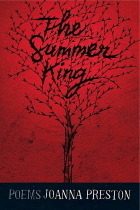 About the Poem:
About the Poem:Cowarral is one of two main sequences in Joanna Preston's first collection The Summer King (Otago University Press, 2009), which won both the inaugural Kathleen Grattan Award (New Zealand) 2008 and the Mary Gilmore Prize (Australia) in 2010. I have made no secret of my admiration for The Summer King as a collection, and particularly love the Cowarral sequence—possibly because it speaks to my own roots in rural New Zealand, a cultural experience that is still shared between an Australian heartland such as the Cowarral of the poem and our New Zealand sense of place. For me, Cowarral is about turangawaewae—a physical and cultural 'standing place for the feet.'
.
Last year, Joanna very kindly allowed me to share Cowarral iii A Summer Storm with you here. Even then I was torn between sharing that or ii The Orange Tree, so am very pleased that Joanna agreed to let me feature it here today.
—
About the Poet:
Joanna Preston is a Tasmanaut poet, editor, and freelance creative writing teacher. The Summer King is her first poetry collection and she is currently dividing her time between her husband, her chooks, and work for her second collection.
—
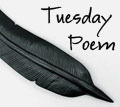 To read the featured poem on the Tuesday Poem Hub and other great poems from fellow Tuesday poets around the world, click here or on the Quill icon in the sidebar.
To read the featured poem on the Tuesday Poem Hub and other great poems from fellow Tuesday poets around the world, click here or on the Quill icon in the sidebar.
October 16, 2011
In Support of the Short Story
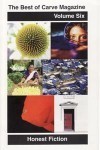 On Friday and Saturday I talked about "Experimentation and Finding the New" and used the specific example of a short fiction series I worked on a few years back. So I was interested to read Neil Gaiman's guest blog "A tweetathon to save the short story", here, on The Guardian blog, including a comment similar to the thrust of my recent posts:
On Friday and Saturday I talked about "Experimentation and Finding the New" and used the specific example of a short fiction series I worked on a few years back. So I was interested to read Neil Gaiman's guest blog "A tweetathon to save the short story", here, on The Guardian blog, including a comment similar to the thrust of my recent posts:
" … short stories are the best place for young writers to learn their craft: to try out different voices and techniques, to experiment, to learn. And they're a wonderful place for old writers, when you have an idea that wouldn't make it to novel length, one simple, elegant thing that needs to be said. "
While I agree that short stories are a great place "to experiment, to learn", if only because they constitute a shorter trial vehicle than a novel length work, I would enter two caveats.
 I don't believe this is just for "young writers." I feel quite strongly that if we cease to experiment and learn then shortly thereafter atrophy sets in, and atrophy is the end of art. So the need to try out the different and the new, to experiment and to learn, is important for writers at all stages of development—and of all ages.
I don't believe this is just for "young writers." I feel quite strongly that if we cease to experiment and learn then shortly thereafter atrophy sets in, and atrophy is the end of art. So the need to try out the different and the new, to experiment and to learn, is important for writers at all stages of development—and of all ages. 
I feel equally strongly that the short story is an art form in its own right, not a stepping stone or subsidiary to the novel. From my time with both that experimental series and the other short fiction I've written, I can tell you that short stories are hard. You don't have the space and words a novel gives you to win your readers attention and get your point across. And at the end of the story, the reader has to feel just as satisfied as when completing a full length novel. My personal view is that every character, every plot thread, every sentence, every word—they all have to earn their presence in a story. And because of the space constraint, the short story is even less forgiving of the author's failure to deliver on that than the novel. So yes, doing short stories well—that's tough.
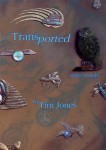 And here's another thing—short stories and novels are very different beasties to write. Novels are tough, too, because you have to build and sustain your story and characters over that longer length work—but in the short story you have to somehow encapsulate the same intensity within a much smaller vehicle. For example, as a general principle, I would venture that the short story writer can't accommodate the same number of point-of-view characters or plot lines, or pitch the story arc as high … But the material that the novel traverses with breadth and depth, the short story angles into like a diamond drill.
And here's another thing—short stories and novels are very different beasties to write. Novels are tough, too, because you have to build and sustain your story and characters over that longer length work—but in the short story you have to somehow encapsulate the same intensity within a much smaller vehicle. For example, as a general principle, I would venture that the short story writer can't accommodate the same number of point-of-view characters or plot lines, or pitch the story arc as high … But the material that the novel traverses with breadth and depth, the short story angles into like a diamond drill.
 So I believe that it is quite possible for an author to be a brilliant short story writer and indifferent novelist, or vice versa—because the short story and the novel, like the poem and the play, are different forms of the art.
So I believe that it is quite possible for an author to be a brilliant short story writer and indifferent novelist, or vice versa—because the short story and the novel, like the poem and the play, are different forms of the art.
There is a perception that interest in the short story has waned. I wonder, sometimes, if that isn't because a great many people writing short stories don't really understand the art, and so the diamond drill is blunted? For example, the story arc is pitched too high and so the ending falls flat or feels like an abrupt truncation.
But Neil Gaiman also wrote that: "People like reading short stories. And they like listening to short stories." I know that I do—that I both love reading a good short story and very much enjoy listening to them on the radio.
But what about you—do you read and enjoy short fiction, or prefer poetry or novels? And what do you think makes a really good short story?
October 15, 2011
Around The Traps
Just a final reminder that I will be speaking to the Christchurch Friends of the Library this Tuesday 18, 12.30 pm at the South Library in Beckenham (66 Colombo Street, cnr of Colombo St and Hunter Tce.) I shall be reading from my books and talking about my personal path to international publication. The entry is by 'gold' coin—and as always, it would be lovely to meet some blog readers there.:)
—
Halloween's the theme on the Supernatural Underground at the moment, with a couple of great posts and giveaways from my fellow Supernatural Underground authors. Merrie Destefano talks about why she loves Halloween here, and how that love has influenced her latest novel, Feast. Terri Garey is more into trick or treating—and you can read all about it here.
—
Mary Victoria—whose launch for her third-in-series, Oracle's Fire is coming up next weekend, Sunday 23, 12 noon at the Weta Cave in Wellington, is now up to R in her traverse through the Dictionary of the Tree 'verse. It's fun, not just if you've read the first two books, but also if you want to find out a bit more about the wonderful world of the Tree that Mary's created, preparatory to starting reading.
—
Over on The Guardian blog, Neil Gaiman is supporting the short story—in particular, supporting the tweetathon campaign highlighting the BBC's Radio 4 proposal to abandon short fiction as part of their broadcasting programme. Neil's post is well worth a read—and given what I have written about my own exploration of the new through short fiction, here, and here, I can only hope the campaign will be successful and the BBC rethink its position.
—
And in case you missed it earlier in the week, I had a guest post on SF Signal ths Wednesday—Looking at the Stars: Why Epic Fantasy Keeps 'Speaking' To Us. You can still check it out here and ther's plenty of other fun and interesting material to check out on the SF Signal site.
October 14, 2011
Experimentation and Finding the New 2
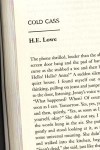 In yesterday's post, I discussed how I wrote a series of short stories a few years ago, each in a different genre, as well as stories in different subgenres of speculative fiction. This process of experimentation helped me to find the genres I was most drawn to, those I found easiest to write (not necessarily the same thing), and also learn that I did have a personal style that would out in whatever I was writing—something that can be either positive or challenging, depending on what I want to achieve with a writing project.
In yesterday's post, I discussed how I wrote a series of short stories a few years ago, each in a different genre, as well as stories in different subgenres of speculative fiction. This process of experimentation helped me to find the genres I was most drawn to, those I found easiest to write (not necessarily the same thing), and also learn that I did have a personal style that would out in whatever I was writing—something that can be either positive or challenging, depending on what I want to achieve with a writing project.
Another benefit of deliberately setting out to write a range of different stories was that it allowed me to experiment with other aspects of writing beside genre. A major one was 'voice'—not my voice as an author, but the 'voices' of different characters speaking through the story. I deliberately played around with this, using first person singular (I) in some stories, third person singular (he/she/it) in others. (And yes, there is an "it" story—one I must rework sometime because writing it was fun.) I also used male and female point-of-view characters to tell different stories, and in the longer stories, multiple point-of-view characters. And found that having more than one point of view character does tend to make your story longer, but offers a lot of potential in terms of differing "slants" (imagine headlights slicing across a darkened landscape) onto the evolving story.
Another aspect I experimented with in these stories was deliberately choosing a word length and crafting the story to fit. This is good discipline, although it led to some frustration with stories that really needed to be bigger to work well—but also a great feeling of satisfaction when I crafted a story that "ripped it" in the word length.
I do think that intensive period of deliberate experimentation was very useful to my development as a writer and is something I may well do again in future, if not necessarily in the same some form. And of course I am always experimenting/learning as I go with my writing—'pursuit of the art' is not a static process. And there is no formula or recipe to be relied upon, only the principle of allowing the story the freedom to reveal itself and the best 'form' for telling it effectively.
 I also said yesterday that " … not all the experiments are going to see the light of day! Or should see daylight, even."
I also said yesterday that " … not all the experiments are going to see the light of day! Or should see daylight, even."
In terms of my series of nine short stories, written to explore the new, the following 5 have seen the light of day:
The Brother King (legendary history/first person point-of-view/male protagonist/stream-of-consciousness style) was the fourth story written and the first to be published. It was shortlisted for the 2005 Raymond Carver Short Story Award and subsequently published in Carve e-zine (Volume 6, No. 5), September 1, 2005. The following year The Brother King was anthologised in The Best of Carve Magazine, March 2006
 Cold Cass (contemporary realism/first person point-of-view/"flash" fiction) was the eighth story written. It was selected out of 900 submissions for publication in Home: New Short Short Stories by New Zealand Writers, (Random House NZ) October 2005
Cold Cass (contemporary realism/first person point-of-view/"flash" fiction) was the eighth story written. It was selected out of 900 submissions for publication in Home: New Short Short Stories by New Zealand Writers, (Random House NZ) October 2005
The Walk Home (modern history/ghost story/third person point-of-view/female protagonist) was the third story written. It was shortlisted for the Aoraki Short Story Award 2005-2006, Highly Commended in the South Island Writers' Association Biennial Short Story Competition 2007, and broadcast by Radio New Zealand's "Nine to Noon" show, July 2008.
The Glory Well (hard scifi/third person point-of-view/male protagonist/novelette) was Commended in the Writers of the Future Competition (USA) in 2007
The Fountain (modern history/supernatural elements/third person point-of-view/female protagonist) was published in Tales for Canterbury (Random Static) 2011
—
 You can read Cold Cass and The Brother King on my website (click on the titles to read.) You can take a "peek inside" The Fountain here, or read it, together with many other wonderful stories by a range of national and international authors by purchasing Tales for Canterbury, here. (Remember it's a fund raiser for helping rebuild Christchurch after its year—to date—of earthquakes.)
You can read Cold Cass and The Brother King on my website (click on the titles to read.) You can take a "peek inside" The Fountain here, or read it, together with many other wonderful stories by a range of national and international authors by purchasing Tales for Canterbury, here. (Remember it's a fund raiser for helping rebuild Christchurch after its year—to date—of earthquakes.)
October 13, 2011
Experimentation and Finding the New
One of the sites I visit regularly is our own Christchurch City Libraries blog, which has been doing a fabulous job of keeping going and delivering great content, regardless of earthquakes, demolition, and the very dry weather we've been having. (We will not say the word drought—yet!)
One of yesterday's featured posts was titled "Should Authors Experiment?" The gist of this particular post was about authors who have made their name writing for adults, but recently turned their hands to Junior or YA fiction—with varying degrees of success apparently, which led the poster to query whether writers should experiment in this way.
As you will see, this got me thinking—and commenting—because I do think it's really important that writers experiment and try new techniques, including writing for different age groups, or in new genres. For example, a few years ago I decided to write a short story in each of a range of different genres, eg a romance, a crime story, a ghost story, historical fiction, contemporary realism—I am sure you're getting the idea! I also separated out the speculative subgenres, putting my pen to hard scifi, space opera, and Arthurian fantasy amongst a few others.
Needless to say, I had a lot of fun, but I also learned a lot, particularly about the kind of stories where my writing flowed, as well as genres that I found more difficult. I also discovered that I had a "style"—which always asserted itself no matter what kind of story I was trying to write! Knowing this means that I also know what I have to work on if I want to push the boundaries of my personal style, or work in an area where I am not naturally comfortable.
So I do think experimentation and trying the new is really important if I want to keep growing and developing as a writer. Here's the thing though—not all the experiments are going to see the light of day! Or should see daylight, even.
I am generally held to be a fair hand at baking—cakes, biscuits/cookies, and desserts of all kinds my speciality—but there've still been plenty of times where things haven't, um, quite worked out. Mostly you know why with baking—forgot an ingredient, put in too much of one thing, not enough of another—but even with baking it can sometimes be a mystery why a creation just isn't quite right. But unless you put yourself out there and try new things, you never get to have the great successes either—and it's exactly the same with writing. (And life, maybe?)
The trick is knowing which of your experiments can be shared with the world—and which wisely set aside. But pretty much you do know—there is definitely the story equivalent of a cake with a sunken, soggy middle! Or where you have used the literary equivalent of salt, when the recipe clearly called for sugar. 
Coming back to the library post though, I do know what the blogger was getting at—that perhaps some of the adult writers were jumping on the kids/YA bandwagon, since that is seen as one of the "hot" area right now. But then again, perhaps because it's "hot" currently, some of the writers felt they could finally justify taking time out from their adult writing to try out the kids/YA idea they'd had waiting in the wings for some time? Who knows?
As I said in my comment on "Should Authors Experiment", I feel that the really important thing is to follow "the calling of my heart" in terms of what I want to write, rather than trying to catch/follow a trend for commercial reasons. I suspect that if I tried that I would find the writing process pretty soulless—and the end product might well read the same way! So I'm going to try and stick with writing what I love and hope that resonates with enough readers to allow me to keep on doing it.
But I love many different kinds of books, so I am going to be trying my hand at new styles of storytelling from time to time. After all, as I also said in my comment, one thing I am quite sure of is that I don't want to keep writing the same book over and over again!
So thems my thoughts—but what about you? Do you have an opinion on any of these matters as a reader, a writer yourself, or even a keen home cook? 



